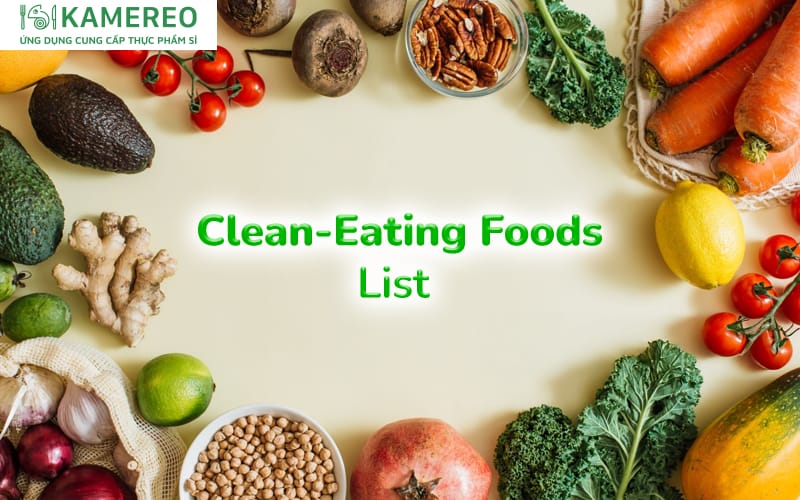Eat Clean foods are fresh, minimally processed, or unprocessed foods that retain their full nutritional value while minimizing harmful additives. Food groups suitable for this diet include whole grains, lean protein, healthy fats, fresh fruits and vegetables, and natural seasonings. These foods provide complete nutrients, support weight loss, and improve overall health. Let’s explore them in more detail with Kamereo in this article!
Eat Clean Food: Protein Group
The protein group in Eat Clean foods includes lean, low-fat, and minimally processed protein sources. These help build muscle, promote satiety, and support metabolism. To meet your protein needs in an Eat Clean diet, consider the following food sources:
White Meat (Chicken Breast, Lean Chicken)
White meat refers to meat that appears lighter in color after cooking, typically containing less myoglobin than red meat (the more myoglobin, the redder the meat). Common types of white meat include: chicken breast, duck breast, fish, rabbit meat, frog meat, and pigeon meat.
This is a high-value, low-fat protein source that also provides important nutrients such as selenium, phosphorus, vitamin B6, and niacin, supporting nutritional balance. White meat helps firm muscles, aids in weight loss due to its high protein and low-calorie content, boosts the immune system, is good for digestion, and contains tryptophan, which helps regulate nerves and reduce stress.
Red Meat
Red meat is meat that is red when raw and retains a dark color after cooking. Common types of red meat include beef, pork, lamb, goat, and buffalo meat. Red meat provides many nutrients such as protein, iron, vitamin B12, and zinc, which help strengthen muscles, blood, and the immune system.
However, you should only consume red meat ≤ 350g/week, as eating too much carries a risk of cardiovascular disease and colorectal cancer.
Plant-Based Protein
Plant-based protein is found in nuts, seeds, mushrooms, kale, avocado, tofu, broccoli, asparagus, peas, Greek yogurt, etc. This is a suitable protein choice for many people, helping to strengthen the body’s ability to fight diseases and infections due to its high antioxidant content.
However, plant-based proteins often lack essential amino acids found in animal protein, so it’s necessary to combine various food sources to ensure nutritional balance.
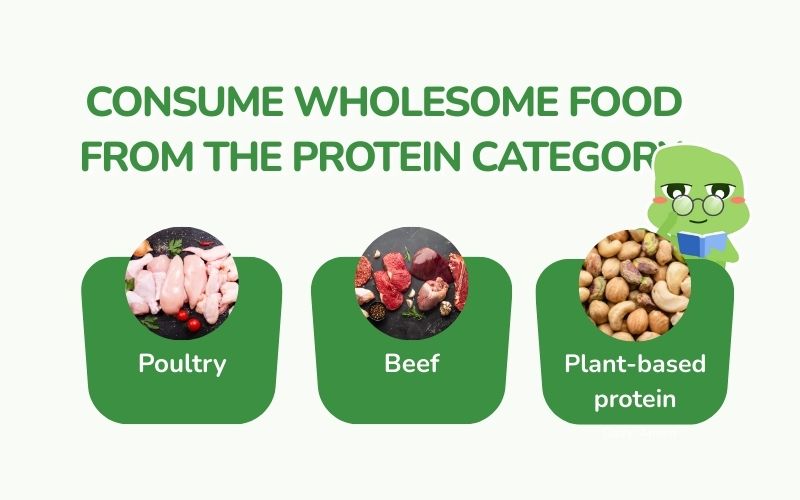
Eat Clean Food: Starchy Carbohydrate Group
The starchy carbohydrate group in Eat Clean foods consists of complex carbs that retain their bran and germ layers, leading to slower digestion. This helps stabilize blood sugar, promotes satiety, and is rich in fiber and B vitamins.
Some Eat Clean foods in the starchy carbohydrate group commonly prioritized in a healthy diet include:
- Brown rice: Known for its high fiber content, low calories, and absence of gluten, trans fats, and harmful cholesterol.
- Sweet potatoes: Provide starch, are rich in fiber, vitamins, protein, and minerals, create a feeling of fullness, help control food intake, and are beneficial for weight loss.
- Quinoa: A notable source of starch that helps promote satiety, thereby supporting effective weight management.
- Legumes (mung beans, black beans, red beans): Rich in protein, contain large amounts of starch, and meet the body’s energy needs well. Additionally, this group of beans is beneficial for cardiovascular health, enhances blood circulation, and supports skin beauty.
- Potatoes: A common and easily found tuber that can be prepared in many ways. However, if you’re eating Clean, prioritize methods with less oil and seasoning.
- Corn: Belongs to the complex carbohydrate group, which helps slow down digestion and provides sustained energy. This food also contains a lot of fiber, which can reduce cholesterol and regulate insulin levels, bringing many health benefits.
- Oatmeal: With a main composition of starch (about 85%) and fiber (about 11%), along with a low fat content, it is a priority choice in the Eat Clean diet.
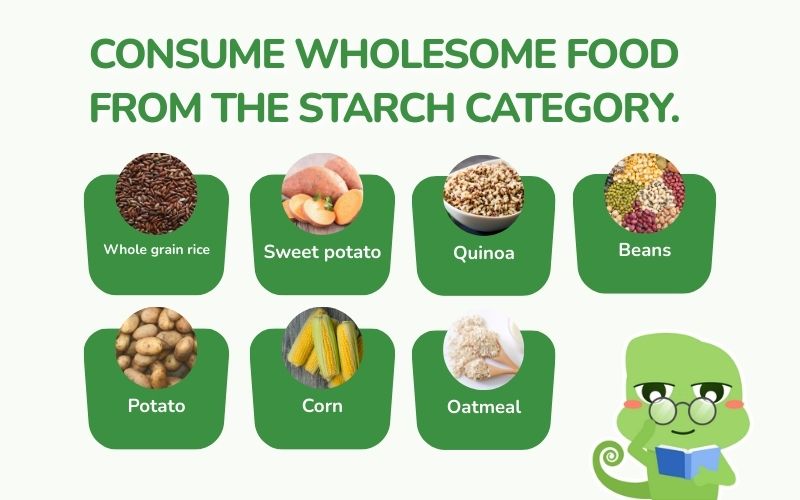
Eat Clean Food: Green Vegetable Group
Green vegetables play an essential role in the Eat Clean diet due to their abundant fiber, vitamin, and mineral content, while also supporting the body’s detoxification process. Here are some common and suitable green vegetables to add to your daily Eat Clean menu:
- Kale: Known as the “king of green vegetables,” kale provides more than 10 different nutrients, including a small amount of protein and beneficial omega-3 fats for heart health.
- Spinach: Spinach is a superfood rich in vitamins and minerals, and can be prepared in various ways such as cooked, juiced, or made into smoothies to enhance meal nutrition.
- Broccoli: Notable for its vitamin K, vitamin C, antioxidants, and omega-3 fatty acid content, broccoli offers many benefits for the cardiovascular system and helps control cholesterol.
- Asparagus: With simple preparation and high nutritional value, asparagus is an ideal choice for Eat Clean eaters looking to lose weight due to its soluble and insoluble fiber, which creates a feeling of fullness.
- Radish: Referred to as “winter ginseng,” radish contains many beneficial nutrients and can be flexibly combined with other vegetables in the daily diet.
- Tomatoes: Adding tomatoes to your Eat Clean menu offers many health benefits due to their important nutrient content, and they can be processed into many delicious and nutritious dishes such as juice, salads, or soups.
- Pumpkin: With nearly 20 different nutrients and low calories, pumpkin is an Eat Clean food that is easy to prepare into many dishes suitable for the Eat Clean diet, such as boiled or oatmeal porridge.
- Winter melon: Not only does it have a mild sweet taste and cooling properties that help cool the body, but winter melon also provides glucids, phosphorus, iron, and vitamins, and can be prepared in various ways for both main meals and snacks.
- Green beans: A familiar rustic dish, green beans offer many benefits due to their high fiber content along with essential vitamins and minerals such as A, C, K, B6, folic acid, calcium, iron, manganese, potassium, and copper.
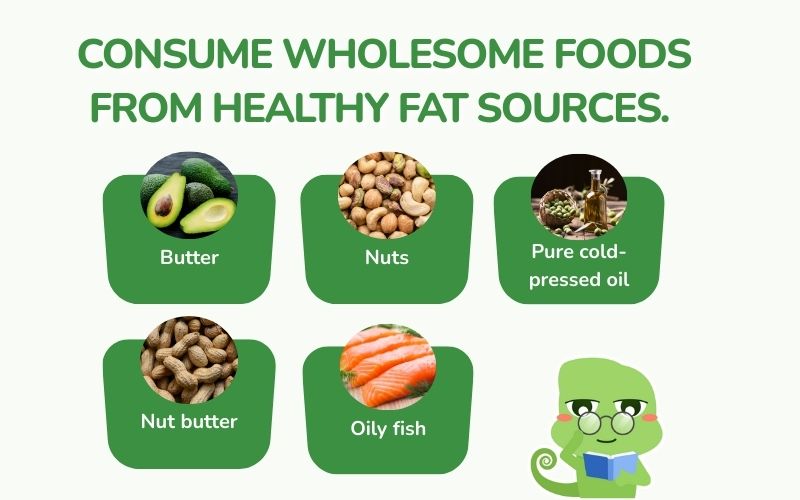
Eat Clean Food: Healthy Fats Group
Healthy fats, also known as unsaturated fats (including both monounsaturated and polyunsaturated forms), play an essential role in maintaining cardiovascular health by tending to lower blood cholesterol. Supplementing with Eat Clean foods rich in healthy fats offers many benefits for the body, especially for those at risk of or currently suffering from cardiovascular and blood pressure-related diseases:
- Avocado: A rich source of monounsaturated fats (oleic acid), also containing potassium, fiber, and magnesium, beneficial for controlling cholesterol and blood sugar.
- Nuts (almonds, walnuts, cashews, hazelnuts, chia seeds, flaxseeds): Provide unsaturated fats, protein, fiber, vitamin E, and magnesium, which have anti-inflammatory effects, protect cell membranes, control blood sugar, and reduce the risk of heart disease.
- Cold-pressed virgin oils (olive oil, coconut oil, avocado oil, flaxseed oil): Contain unsaturated fatty acids (oleic acid in olive oil), are rich in antioxidants, and can reduce inflammation, protect cholesterol, and support heart health.
- Fatty fish (salmon, mackerel, herring, sardines): A rich source of omega-3, a beneficial fatty acid for the cardiovascular system and overall health, recommended for consumption of approximately 198 grams per week.
- Nut butters (almond butter, peanut butter, cashew butter, etc.): Made from 100% ground nuts, rich in monounsaturated and polyunsaturated fats, supporting the reduction of bad cholesterol, good for the heart, while also providing protein, fiber, and micronutrients, helping to promote satiety and control weight.
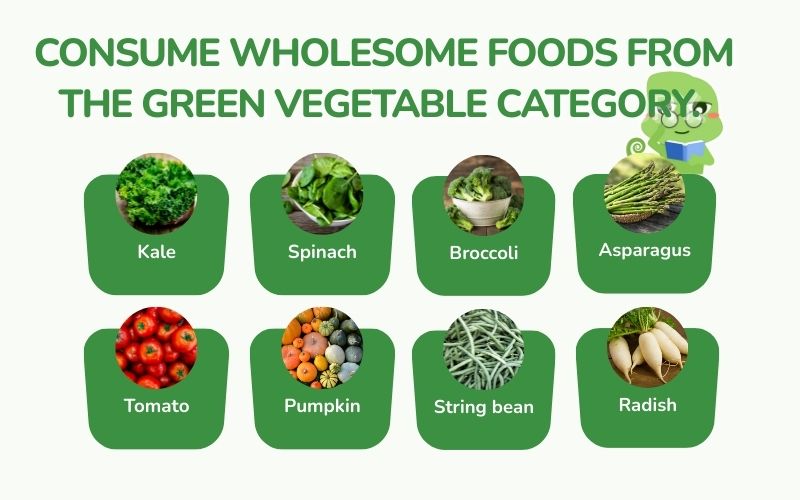
Foods to Limit in an Eat Clean Diet
To implement an Eat Clean diet effectively and sustainably, you need to pay special attention to the following food groups that can negatively impact the process:
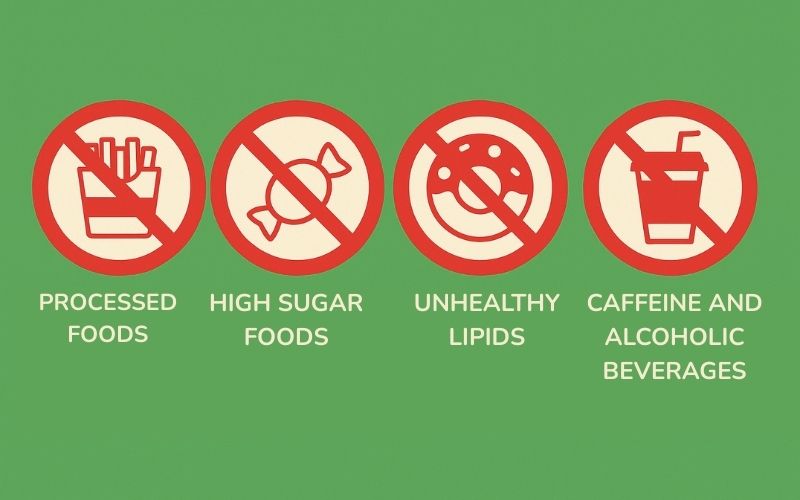
Processed Foods
Processed foods often pose health risks due to saturated fat, trans fat, added sugar, artificial ingredients, preservatives, and additives. However, not all packaged foods are harmful. Some options, such as whole grains and low-sugar protein bars, provide beneficial fiber, protein, vitamins, and minerals.
Refined Sugar and High-Sugar Foods
Refined sugar and high-sugar foods, including sugary breakfast cereals, flavored yogurts, granola bars, tarts, canned fruit juice, soda, and pre-made coffee drinks, should be limited in your daily diet. Excessive consumption, especially from sugary drinks, is linked to a higher risk of chronic diseases and unwanted weight gain.
Unhealthy Fats
Nutritionists recommend limiting the consumption of foods rich in saturated fat, including both packaged and whole foods, to avoid obesity and reduce the risk of cardiovascular diseases, etc. Instead, you should prioritize supplementing with monounsaturated and polyunsaturated fats from sources such as fatty fish, avocado, nuts, and olive oil to support optimal health.
Alcoholic and High-Caffeine Beverages
Alcoholic beverages such as beer and wine, and high-caffeine beverages such as energy drinks and strong coffee, can lead to dehydration and negatively affect sleep and the body’s metabolism. Frequent abuse of these drinks also poses a potential risk of impaired liver function and nervous system.
Conclusion
The above is basic information about Eat Clean foods to help you build a healthy lifestyle. Prioritizing fresh, minimally processed foods not only helps you effectively manage your weight but also nourishes your body from within, bringing long-lasting balance and positive energy. To discover more tips for comprehensive health and beauty care, don’t forget to visit the Healthy and Beautiful section on Kamereo today!



